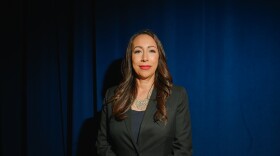UPDATE: 6:30 p.m., Nov. 9, 2016:
In a statement on Wednesday, team owner Dean Spanos said he doesn't intend to decide on next steps until the season is over.
"This has been a long campaign, and I’m sure we all want to put aside stadium talk for a while and focus on the rest of the Chargers’ season," Spanos said.
UPDATE: 4:40 p.m., Nov. 9, 2016:
Mayor Kevin Faulconer on Wednesday addressed voters' rejection of Measure C on the ballot.
About 57 percent said no to the proposal to build a downtown stadium for the Chargers. It needed two-thirds majority to pass.
Faulconer said in a statement:
I've always trusted San Diegans to have their say on the stadium issue, and voters have clearly said they want a new plan. While there isn't support for this particular measure, the results demonstrate that a large number of San Diegans love the Bolts and want them to stay. We now have momentum to work together with the Chargers to develop a new solution to keep the team in San Diego. The safeguards the Chargers agreed to were critically important and I believe voters want to see taxpayer protections in a new stadium plan before they approve it. I invite the team to work with the City of San Diego, fans and community so we can get this done and continue the legacy of the San Diego Chargers. I am confident that the public will approve a new home for the Chargers when the right plan is presented.
UPDATE: 6:50 a.m., Nov. 9, 2016:
The future of the San Diego Chargers is unclear now that city voters soundly rejected a plan to build a stadium and convention center complex.
Measure C fell far short of the two-thirds majority required to pass the plan to build a stadium with more than a billion dollars in public funding. Chargers officials spent more than $7 million trying to rally support for a plan that would have raised the hotel tax from 12.5 percent to 16.5 percent.
Haney Hong of the San Diego County Taxpayer's Association said the city's tax averse electorate wasn't ready to write a check.
"I think that folks would love the Chargers to stay but I think they want to make sure its done in a deal that's fair to taxpayers,” Hong said.
In the weeks leading up top the election, Charger's owner Dean Spanos was reluctant to discuss the future of the team, if measure C failed.
"I want to see the support we get or we don't get, and then I'm going to take some time afterwards and evaluate all my options at that point,” Spanos said Friday at a “Yes on C” rally.
Spanos issued a brief e-mail statement shortly after midnight when it was clear Measure C would lose. He thanked people for their support and said he's not ready to make a decision on the team's future. The statement read:
In terms of what comes next for the Chargers, it's just too early to give you an answer. We are going to diligently explore and weigh our options, and do what is needed to maintain our options, but no decision will be announced until after the football season concludes and no decision will be made in haste.
The team holds an option to join the Rams in Los Angeles as early as next season. San Diego Mayor Kevin Faulconer campaigned for Measure C after extracting several concessions from the team. Those agreements were designed to protect taxpayers. He told KPBS late last week that he's willing to work with the team to find a way to keep the Chargers in San Diego.
"I've said all along that the team belongs here,” Falconer said. “I think if you work together, keep focused, you can achieve success. I'm confident we can do that."
Even opponents suggest that the door has not been completely slammed shut. The Taxpayer Association's Haney Hong said it just requires a different approach.
"Anything is possible as long as folks do what we do in San Diego, which is come together as a community, talk about things, and make sure that we deliberate, and make sure that all the stakeholders are represented."

UPDATE: 12:30 a.m., Nov. 9, 2016:
With Measure C trailing badly at the ballot box, the San Diego Chargers might have to come up with a plan B for a new stadium.
The "no" vote on Measure C stands at 59.2 percent with 46 percent of precincts reporting. The "yes" vote stands at 40.7 percent.
UPDATE: 11:30 p.m., Nov. 8, 2016:
The San Diego Chargers hopes for a new downtown stadium might be slipping away.
The "no" on Measure C vote stands at 60.3 percent with 29 percent of precincts reporting. The "yes" vote stands at 39.7 percent.
UPDATE: 10:50 p.m., Nov. 8, 2016:
The San Diego Chargers' initiative to build a new stadium downtown continues to trail as results come in. The "no" votes stand at 61 percent, with 87,860 votes. The "yes" votes are at 39 percent, or 56,087 votes with 19 percent of the precincts reporting.
Measure C faces a two-thirds voter approval threshold to pass.
UPDATE: 8:10 p.m., Nov. 8, 2016:
Measure C, the San Diego Chargers' initiative to build a new stadium downtown, has fallen behind in early returns. The no vote has 61.2 percent, while the yes vote has 38.8 percent.
If passed, the measure would create a special tax which, according to state law, requires a two-thirds majority vote to pass.
Original post:
Measure C, the San Diego Chargers' initiative to build a new stadium downtown, calls for an increase in region's hotel room tax.
The transient occupancy tax would jump from 12.5 to 16.5 percent. That would allow a city-created agency to borrow roughly $1.15 billion which would be spent on the construction of a downtown sports stadium with a convention center annex included. The Chargers and the NFL would add $650 million.
RELATED: From A To N: A Breakdown Of The Measures On San Diego’s November Ballot
"For cities like San Diego, that don't have the robust corporate base that Silicon Valley has, or the multibillionaire owner like you have in Los Angeles, you have different circumstances here. If you want to keep your team, there's going to have to be some investment," said Fred Maas, a special consultant hired by the Chargers.
Maas is quick to stress that the taxpayer funding for the estimated $1.8 billion project will come from out-of-town visitors. Locals won't pay at all, he argued, as long as they don't stay in a San Diego hotel.
Who's on each side?
The football team said there is a lot at stake for San Diego.
"It's an important fabric of who we are as a city and how we sell ourselves as a city," Maas said.
"Either we’re a tourist destination or we're America's finest city. And that means your sports teams. Your support for your sports teams. So if you want the Chargers to stay, you ought to vote for this," Maas said.
And the team needs plenty of votes.
The city attorney said Measure C creates a special tax which, according to state law, requires a two-thirds majority vote to pass.
In an effort to round up those votes, the team has pumped more than $7 million into the “Vote Yes on C” campaign. Some of that money is being spent on television spots. One ad features former San Diego Mayor Jerry Sanders.
"You know I think we should all support Prop C because it's more than football. It's about the future of the city, it's about the vision, a grand vision for the city, and it's about jobs and the economy," Sanders said in the ad.
Other ads featured fans, and some included former players, like former Chargers quarterback Dan Fouts.
If the vision argument wasn't convincing, Chargers officials asked voters to consider money.
The team argued the project will create demand for more local hotel rooms.
The Chargers hired consultant Rob Hunden to review the stadium and convention center idea. He concluded that the project will generate $750 million in new hotel room revenue over 10 years.
"I started out as a skeptic," Hunden said.
He worked with convention planners to evaluate if a convention center annex was a feasible business venture.
"So the more we got into it, we realized that, ‘Hey, this is a smart idea.’ They're not going to be overtaxing. They've got a pretty sound proposal in front of us, from everything we could tell," Hunden said.
San Diego Mayor Kevin Faulconer publicly endorsed the measure just over a month ahead of election day after getting a list of compromises from the Chargers. Faulconer said those agreements give the city better financial protections, but critics charged the side deal is not binding.
San Diego hotel owners balked at the sharp room tax hike. They also were not happy with a change in the way the city’s tourism marketing district was supported under the measure.
The hotel industry hired its own consultant, Thomas Hazinski, who concluded the project creates $2.3 million a year in new hotel tax revenue, but the project's construction and operating costs would top $67 million a year.
And the San Diego Taxpayers Association won't support the plan because it fears the city's general fund might be tapped if revenues fall short of projections.
San Diego's Independent Budget Analyst reviewed the proposal because of a mandate to review the fiscal impact of all ballot measures going in front of voters. That fiscal review was full of uncertainty.
"We've seen scenarios where the project cash flows, in other words, the tourism occupancy tax increase is sufficient to cover the project related cost. Some of the tourism marketing funding that's promised and ultimately would flow some revenue to the city's general fund," said Jeff Kawar, deputy director of the Independent Budget Analyst's office.
"Conversely, we've seen scenarios that are plausible scenarios where the (transient occupancy tax) increase would not be sufficient to cover the project-related cost," Kawar said.
Some opponents have joined forces under the "No Downtown Stadium" banner.
They said San Diego's downtown region doesn't need a football stadium, and they called the convention center add-on a Christmas tree ornament hung on the project to convince people to vote for the measure.
The group was not pleased the Chargers put the plan together by themselves.
"When you're looking at public dollars, you really need to have a discussion and negotiation," said April Boling of the NO Downtown Stadium group.
Measure C opponents got a funding boost from the region’s hotel operators, but they have raised significantly less money than the Chargers put into the fight. Even so, Boling remained optimistic the proposal will be defeated.
"This is not a measure, I don't think, where people need to have it explained to them. Sometimes there are very complicated measures that are on the ballot that people don't quite know what to think about them so they need education. This is not one that needs education," Boling said.
Boling wanted to see Measure C lose soundly, by more than 50 percent. She worried the Chargers will pursue the downtown stadium plan if the measure fails to get two-thirds support on Election Day, but still rises above the 50 percent threshold.
Chargers consultant Maas said there is no plan B after election day if the measure fails, because the team was only focused on passing Measure C.
The downtown stadium convention center plan was born after NFL owners rejected the Charger's plan for a new stadium with the Raiders in a Los Angeles suburb. The team retains an option to move to Los Angeles after this season.







